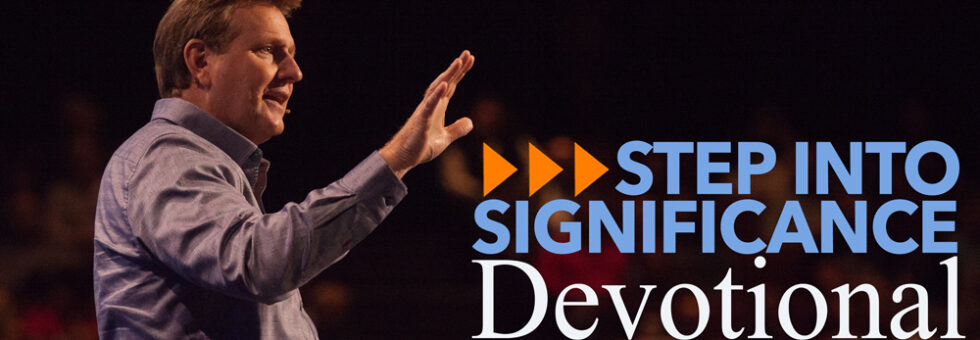At the end of World War II, much of Europe lay in ruins. Pieces of buildings sat devastated by bombings and burnings. Streets overflowed with rubble and dust. Orphaned children lined the street—kids left suddenly without care, food, and shelter.
One morning during this terribly dark time, an American soldier was driving his jeep through the war-torn streets of London. As he turned a corner, his eyes fell on a little boy in shabby clothes with his nose pressed against a bakery window.
The soldier followed the boys’ gaze inside. Lights were on, and the baker inside was pulling fresh bread and pastries from the oven. The soldier stopped and bought some. On his way out, he handed the entire bag to the boy.
The boy stared at him in disbelief for a moment before taking the bag. The soldier smiled and walked away, but a moment later, he felt a tug on his coat.
“Mister,” the boy said. “Are you… Are you… God?”
I love this story because it’s a beautiful reminder that when we love people well, we look like God to others. We reflect our Heavenly Father in a way that impacts people for a lifetime.
That’s why, in 1 Corinthians 13, Paul tells us we can do a lot of heroic things in life—speak well, acquire expert knowledge, etc.—but nothing is more important than loving well. Love is the basis of the gospel!
Paul knew this because Jesus said it first, in Matthew 22:37-40. When asked what the greatest commandment was, Jesus replied “…‘Love the Lord your God with all your heart and with all your soul and with all your mind.’ This is the first and greatest commandment. And the second is like it: ‘Love your neighbor as yourself.’…”
Love God and love people—the two greatest commandments. They sound simple enough, don’t they? But we all know simple doesn’t always mean easy, so let’s take a closer look at how we can love well.
John 14:15 shows us what loving God looks like—obedience. We love Him when we obey Him. Now let’s look at how we’re to love others. First, the verse says to love your neighbor as yourself. God loves you, and He wants you to love you, too—to invest in your own spiritual, mental, physical, and emotional health. When you do, you’ll be better prepared to love others well, too.
When Jesus talks about loving others here, the word He uses for love is agape. The meaning of this word tells us love is a decision, not an emotion. It’s a commandment—not to feel a certain way, but to choose a certain way—to decide to bring benefit to another life. 1 Corinthians 13 lists out what love looks like: patience, kindness, forgiveness, truth, hope, perseverance, etc.
Loving people well should forever be our life’s greatest aim. It’s just as St. Francis of Assisi said: “Preach the gospel at all times and if necessary, use words”!


